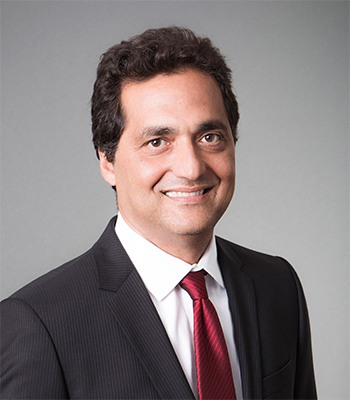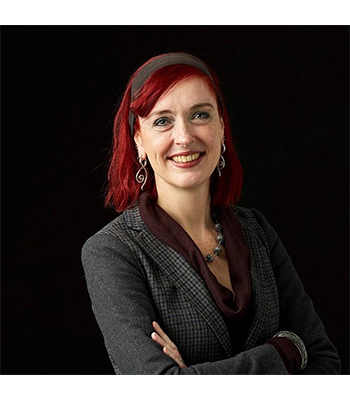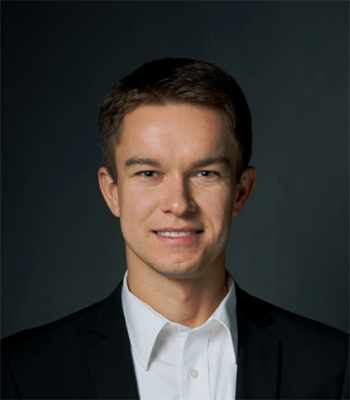CREATE is proud to announce the appointment of four new Research Fellows at USC, two from the Viterbi School of Engineering and two from the Price School of Public Policy. They join several other research fellows at USC and 14 external research fellows at other institutions in the U.S. and Europe:
The four new fellows are:
- Maged Dessouky, Senior Research Fellow (Dean’s Professor and Chair in the Daniel J. Epstein Department of Industrial and Systems Engineering)
- Ketan Savla, Research Fellow (John and Dorothy Shea Early Career Chair in Civil Engineering, Associate Professor in the Sonny Astani Department of Civil and Environmental Engineering, Ming Hsieh Department of Electrical and Computer Engineering, and Daniel J. Epstein Department of Industrial and Systems Engineering)
- Wändi Bruine de Bruin, Senior Research Fellow (Provost Professor of Public Policy, Psychology, and Behavioral Science in the Sol Price School of Public Policy and Dornsife Department of Psychology)
- Jakub Hlávka, Research Fellow (Research Assistant Professor in the USC Price School of Public Policy)

Maged M. Dessouky, Ph.D., is Dean’s Professor and Chair in the Daniel J. Epstein Department of Industrial and Systems Engineering. Previously, he was Director of the Epstein Institute at the University of Southern California. Prior to joining the faculty at USC, Dr. Dessouky was employed at Hewlett-Packard (Systems Analyst), Bellcore (Member of Technical Staff), and Pritsker Corporation (Senior Systems Analyst).
Dr. Dessouky’s research focuses on developing simulation and optimization models in improving the efficiency of large-scale complex systems, and in particular supply chain and global logistics networks. His simulation models have been used for capacity analysis of the Southern California rail network. He has developed location and routing models for the distribution of medical supplies in the event of a large-scale emergency. Dr. Dessouky was recipient of the 2007 Transportation Science & Logistics Best Paper Prize for the paper “Optimal Slack Time for Schedule-Based Transit Operations” published in Transportation Science and is a Fellow of the Institute of Industrial and Systems Engineers (IIE).
He has been a principal investigator or co-principal investigator of over 50 funded research projects totaling over 50 million dollars supported by the National Science Foundation, Society of Manufacturing Engineers, Caltrans, Federal Transportation Administration, Los Angeles County and Department of Defense, among others. This research has led to over 100 refereed journal articles that are either in print or have been accepted for publication in leading journals of the field including IIE Transactions, Transportation Science, Mathematics of Operations Research, ACM Transactions on Modeling and Computer Simulation, IEEE Transactions on ITS, Transportation Research – Part B, and European Journal of Operational Research.
One on-going project which is funded by the National Science Foundation is the use of a co-simulation optimization control (COSMO) approach for the freight routing and load balancing problem. Transportation networks are complex dynamical systems with nonlinear dynamics, random phenomena and uncertainties that cannot be accurately captured by traditional flow-based or queuing theory-based mathematical models. The use of real time traffic flow simulators accounts for all kind of interactions on the vehicle and infrastructure levels, geometry of the road, traffic lights and stop signs etc. The simulator generates estimates of the states of the system which in this case are the link travel times and/or density which are used by the optimization block to generate optimum routes for freight.
Professor Dessouky is area/associate editor of Computers & Industrial Engineering, IISE Transactions, and Transportation Research Part B: Methodological. He previously served as Area/Associate Editor of ACM Transactions of Modelling and Computer Simulation and IEEE Transactions on Intelligent Transportation Systems, and was on the Editorial Board of Transportation Research Part E: Logistics and Transportation Review. He was Program Chair of the 2003 Industrial Engineering Research Conference.
He teaches supply chain and operations research courses both at the undergraduate and graduate level. He has won a number of teaching awards including the Orange County Engineering Council Outstanding Engineering Educator Award, IISE OR Teaching Award, USC Associates Award in Teaching (Top University Award for Teaching), and the TRW School of Engineering Teacher of the Year Award.
Dr. Dessouky received his B.S. and M.S. degrees in Industrial Engineering from Purdue University in 1984 and 1987, respectively. He received a Ph.D. in Industrial Engineering and Operations Research from the University of California, Berkeley, in 1992.
Ketan Savla, Ph.D., is the John and Dorothy Shea Early Career Chair in Civil Engineering and an associate professor in the Sonny Astani Department of Civil and Environmental Engineering, the Ming Hsieh Department of Electrical and Computer Engineering, and the Daniel J. Epstein Department of Industrial and Systems Engineering at USC. He is also a co-founder and the chief science advisor of Xtelligent, Inc., a smart urban mobility startup. Prior to joining the faculty at USC, Dr. Savla was with the Laboratory of Information and Decision Systems at MIT, first as a postdoctoral associate and then as a research scientist.
Dr. Savla’s research focuses on characterizing fundamental limits on efficiency and resilience of large-scale societal systems due to physical and behavioral constraints of its constituents, and in leveraging technological and algorithmic advancements to overcome these limitations. In particular, he has developed algorithms to control the routing of flow in transportation and energy networks using real-time information to withstand maximal disruption. Some of the underlying algorithms are being field-tested through his startup.

He has also provided quantitative insight into the role of networked structure of a system, the type of real-time control, and decentralization of control operation, on the extent to which the system is able to maintain its functionality under a given disruption. Such insights are useful for pre-disruption resilience planning.
Dr. Savla was a recipient of NSF CAREER, and a co-recipient of the George S. Axelby Outstanding Paper Award from the IEEE Control Systems Society for the paper “Robust Distributed Routing in Dynamical Networks – Part II: Strong Resilience, Equilibrium Selection and Cascaded Failures.” He is also a recipient of the Donald P. Eckman Award from the American Automatic Control Council, an entity spanning nine professional societies, for “fundamental contributions to cyber-physical systems, network flows, queueing systems, and combinatorial optimization applied to transportation and robotics.”
He has been a principal investigator or co-principal investigator on several grants from the National Science Foundation, Caltrans, U.S. DOT, and Department of Defense. This research has led to refereed articles in leading journals of the field, including IEEE Transactions on Automatic Control, IEEE Transactions on Control of Network Systems, SIAM Journal of Control and Optimization, Proceedings of the IEEE, Transportation Research – Part B, and AIAA Journal of Guidance, Control and Dynamics.
In a series of recent projects funded by Caltrans and the National Science Foundation, Dr. Savla is looking at the role of information structure on performance, in terms of efficiency and resilience, of large-scale transportation networks. It is arguably impractical to real-time control traffic flow in a centralized manner using the entirety of the huge amount of streaming live data. Distributed architecture provides a scalable and robust alternative. He has been studying the tradeoff between ease of implementation and loss in performance due to distributedness of control operation. Dr. Savla is also exploring the paradigm of information design, whereby a system planner selectively randomizes information available to individual decision makers (e.g., route choice of drivers) to influence their decisions so as to minimize a social cost (e.g., during evacuation). Such a design is naturally constrained by behavioral considerations. Dr. Savla is developing methodologies to formalize such constraints and to solve the associated information design problem.
Professor Savla serve(d) as an associate editor of IEEE Transactions on Control of Network Systems, IEEE Control Systems Letters, IEEE Transactions on Intelligent Transportation Systems, and the conference editorial board of the IEEE Control Systems Society. He regularly serves as a program committee member/co-organizer for workshops and conferences on topics at the interface of smart cities, transportation, and control systems. He teaches transportation courses both at the undergraduate and graduate level. He also teaches graduate courses on systems theory. Collectively, these courses attract students from civil engineering, electrical engineering, aerospace and mechanical engineering, industrial and systems engineering, biomedical engineering, and public policy.
Dr. Savla received his B. Tech. in Mechanical Engineering from IIT Bombay in 2003, M.S. in Mechanical and Industrial Engineering from the University of Illinois, Urbana-Champaign in 2004, M.A. in Applied Mathematics and Ph.D. in Electrical and Computer Engineering, both from the University of California, Santa Barbara, in 2007.

Wändi Bruine de Bruin, Ph.D., is a Provost Professor of Public Policy, Psychology, and Behavioral Science in USC’s Sol Price School of Public Policy and USC Dornsife’s Department of Psychology. She leads the Behavioral Science and Well-Being Policy initiative that aims to bring together behavioral decision researchers from across USC. She is affiliated with various research centers at USC, including the Schaeffer Center for Health Policy and Economics, the Center for Economic Research, and the Center for Sustainability Solutions.
Dr. Bruine de Bruin’s research uses insights from psychology and behavioral science to understand how people form their risk perceptions and make associated decisions. She also aims to design and evaluate risk communications and interventions that inform those decisions. She will lead CREATE’s Behavioral Decision-Making theme area, which is dedicated to advancing understanding of the dynamic relationships between public response, societal consequences, and risk and crisis communication in the event of a disaster.
Dr. Bruine de Bruin has published more than 120 peer-reviewed publications on the topics of judgment and decision-making, as well as risk perception and communication, in journals targeting multiple disciplines. She is a fellow of the UK’s Academy for Social Sciences, the Psychonomic Society, and the Network for Studies on Pensions, Aging, and Retirement. She is a member of the editorial boards of the Journal of Risk Research, Decision, the Journal of Behavioral Decision Making, Medical Decision Making, Psychology and Aging, and the Journal of Experimental Psychology:Applied. She previously co-edited special issues on decision-making competence for the Journal of Behavioral Decision Making and Frontiers in Psychology, as well as on health risk communication for Current HIV Research.
Dr. Bruine de Bruin received her Ph.D. in Behavioral Decision Research and Psychology from Carnegie Mellon University in 1998. Her interdisciplinary research interests are reflected in her career trajectory. From 1999-2002, she was a post-doc in the Technology Management department at Eindhoven University of Technology in the Netherlands. From 2002-2012, she joined the faculty at Carnegie Mellon University, where she was affiliated with the Department of Social and Decision Sciences and the Department of Engineering and Public Policy. In 2012-2019, she was Professor of Behavioural Decision Making (awarded with a leadership chair) at the Leeds University Business School (UK), where she served as director of the Centre for Decision Research and deputy director of the Priestley International Centre for Climate. Although Dr. Bruine de Bruin did not move to USC full-time until January 2020, she has been working with colleagues in USC’s Center for Economic and Social Research since 2014.
One ongoing line of Dr. Bruine de Bruin’s research involves collaborations with climate scientists and engineers to understand public perceptions of climate change, mitigation, and adaptation. Previous work with the UK Met Office examined how professionals (mis)interpret visualizations of climate projections, and offered suggestions for improvement taken from the graph design literature. A current project with the United Nations Foundation examines how people (mis)interpret terms that are commonly used in climate change communications, including “mitigation,” “adaptation,” and “carbon neutral,” and suggests potential strategies for improvement from the risk communication literature.
With colleagues in USC’s Center for Economic and Social Research, Dr. Bruine de Bruin is currently running a national COVID-19 tracking survey to assess risk perceptions and protective behaviors, age differences in mental health, and political polarization during the COVID-19 pandemic in the U.S. The data from this COVID-19 tracking survey are publicly available.
Dr. Bruine de Bruin has recently received notification of a grant award from Lloyd’s Register Foundation for a project that aims to understand how people around the world form their perceptions of risks associated with infectious diseases, accidents, violence, cyber threats, and other topics. For this project, she will analyze data from the World Risk Poll, which has been conducted by the Lloyd Register Foundation and Gallup in a total of 140 countries.
Dr. Bruine de Bruin contributed her expertise in psychology and behavioral science to various expert panels. She previously served on the National Academy of Sciences expert panel on Communicating Science Effectively. She currently serves on the National Academy of Sciences committee on mask use and respiratory health.
Jakub P. Hlávka, Ph.D., is a Research Assistant Professor at the USC Price School of Public Policy and an Adjunct Policy Researcher at the RAND Corporation.
Dr. Hlávka received his Ph.D. in Policy Analysis from the Pardee RAND Graduate School, where he also worked as an Assistant Policy Researcher. During his time at RAND, his work in national security and health policy was funded by NASA, the Office of the Secretary of Defense, the Department of Health and Human Services, and other national and international agencies. Prior to joining RAND, Dr. Hlávka served in research and consulting roles at the Fraunhofer Society in Germany, RAND Europe in the UK and Belgium, and the Ministry of Finance and the Anti-Corruption Bureau of the Czech Government in Prague. His work has spanned the areas of intellectual property regulation, defense and aerospace industry trade, 3D printing, the fight against corruption, and the regulation of capital markets. He gained additional experience at Genentech in the area of pipeline and portfolio planning, and joined the Hoover Institution at Stanford University and the Prague Security Studies Institute as a regulatory and security policy scholar.

Dr. Hlávka is currently a Co-Principal Investigator of research studies funded by the Centers for Disease Control and Prevention (CDC) and the Center for Accelerating Operational Efficiency (CAOE), a Department of Homeland Security S&T Center of Excellence. These studies seek to understand the benefits of travel-related monitoring and contact tracing, and the effects of select interventions on the COVID-19 pandemic. He also serves as a Project Manager of a National Institute on Aging grant related to ensuring access to future Alzheimer’s therapies, and is building a multidisciplinary research portfolio related to the economics of aging, access to innovation, health system preparedness, and resilience.
He has been recognized as a Young Leader by the Aspen Institute Central Europe, a Global Shaper by the World Economic Forum, and a Leader of Tomorrow by the St. Gallen Symposium. In 2020, he received the USC Price School Bronze Research Award.
Dr. Hlávka’s expertise in the areas of innovation, health care preparedness, and international security will be major assets to CREATE’s future research.
Posted: December 16, 2020
